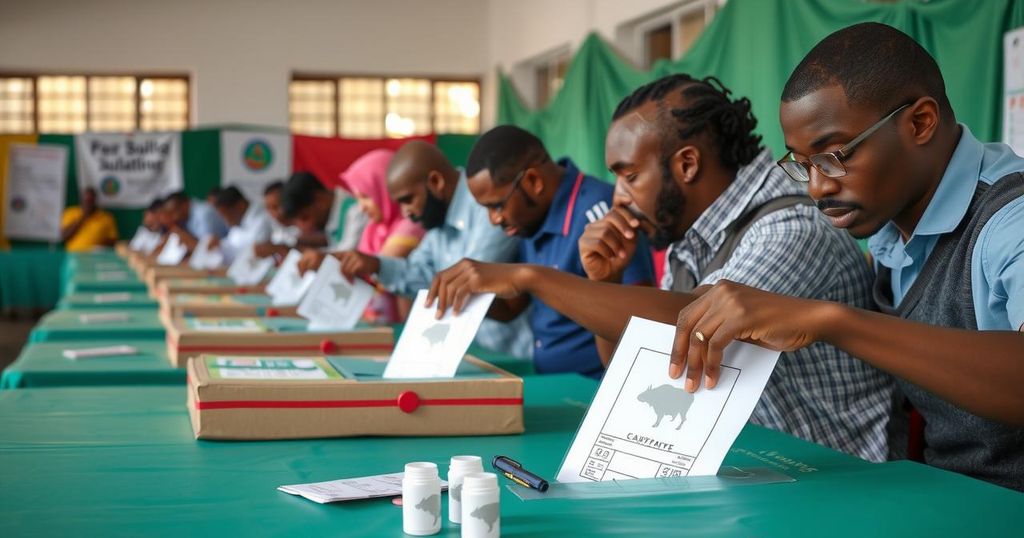Comoros Votes Amid Controversy in Parliamentary Elections

Voters in Comoros are casting their ballots to elect a new parliament amid controversies surrounding President Azali Assoumani’s administration, which faces allegations of electoral misconduct. Around 338,000 individuals are registered to vote, while nearly 100 candidates compete for parliamentary seats. The election is significant given the political tensions and the possibility of Assoumani’s son ascending to power after 2029.
Voters in the Comoros archipelago are participating in an electoral process to determine the composition of the 33-seat parliament. This election follows the controversial re-election of President Azali Assoumani, whose legitimacy has been questioned by opposition factions citing allegations of electoral irregularities. Despite these claims being firmly contested by ruling party officials, anticipation surrounds this election marked by the participation of approximately 338,000 registered voters.
On a significant note, the last parliamentary elections were conducted in January 2020. The Supreme Court has officially selected nearly 100 candidates who will vie for seats in the parliament. Concerns arise regarding President Assoumani, who has been in power since a coup in 1999, as observers suspect he may be grooming his son, Nour El-Fath, for succession after his term ends in 2029. In a move that has stirred additional controversy, Assoumani conferred extensive powers on his son in 2024, entrusting him with the coordination of government affairs.
Different factions within the opposition, notably the Juwa party led by former President Ahmed Abdallah Sambi, advocate for a boycott of the elections. Conversely, some factions have decided against such a strategy, believing participation may expose the regime’s shortcomings. Hamidou Karihila, running with the opposition Hope of the Comoros party, emphasized that engaging in the electoral process could contribute to revealing systemic flaws and hastening the regime’s decline.
The political landscape in the Comoros has historically been shaped by instability, most notably through coups and allegations of electoral fraud. President Azali Assoumani, who has ruled since 1999, has faced increasing scrutiny over his governance style and electoral integrity. The current parliamentary elections are pivotal, as they may influence both Assoumani’s administration and the political future of the archipelago. With the opposition fractured over participation strategies, the electoral results could provide insight into the political mood of the nation.
In summary, the parliamentary elections in the Comoros represent a crucial turning point in the nation’s political narrative. With significant challenges to the legitimacy of President Assoumani’s regime and a fragmented opposition, the results of this election may not only impact governance but also signal the potential for future political shifts within the archipelago.
Original Source: www.stawelltimes.com.au






